Digestive/GI
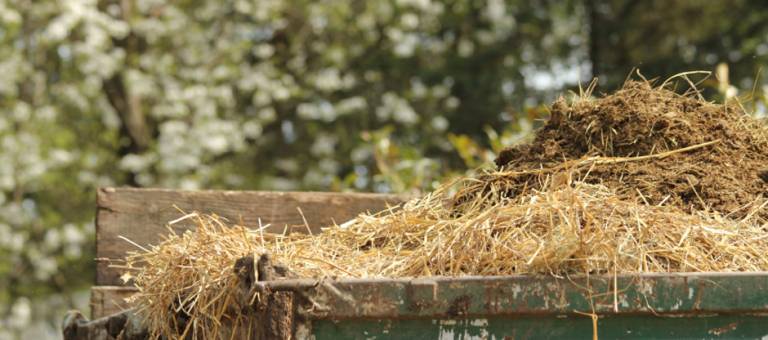
July 15, 2014
Horse Oversupplementation: Environmental Effects
Horse manure is an excellent fertilizer, can be turned into paper products, and even used to make bricks to
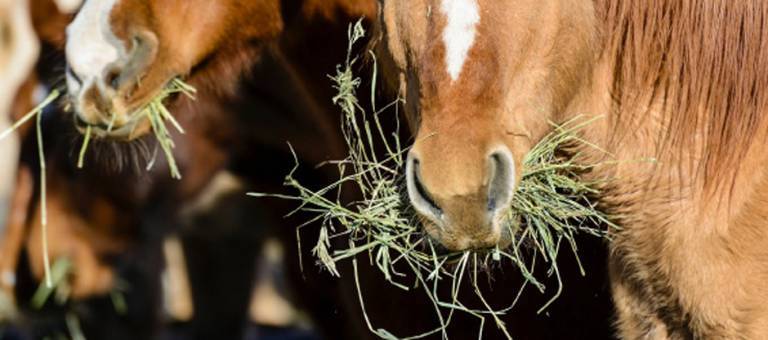
July 10, 2014
Dietary Management to Prevent Horse Bladder Stones
One place where pH (a measure of acidity or alkalinity) is particularly important in horses is the urinary tract.
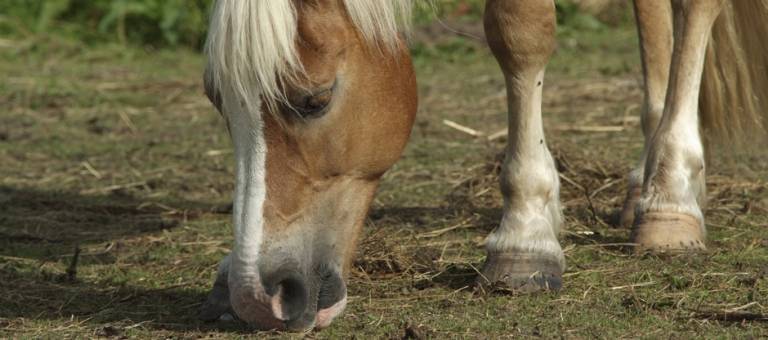
June 26, 2014
Fat Horses and Grazing Muzzles: Why “Giving Him a Little Break” Is a Bad Idea
When researchers designed a study to check pasture intake, they found that horses with restricted grazing times were able
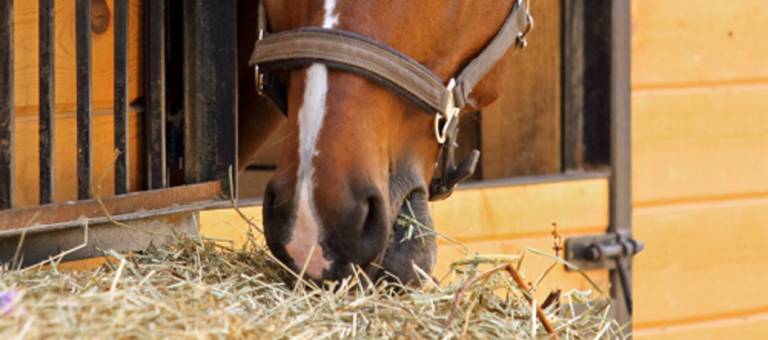
June 23, 2014
Effect of Meal Type and Size on Cecal pH in Horses
Cecal pH will be significantly lower at four, five, and six hours after feeding 13 lb (6 kg) of
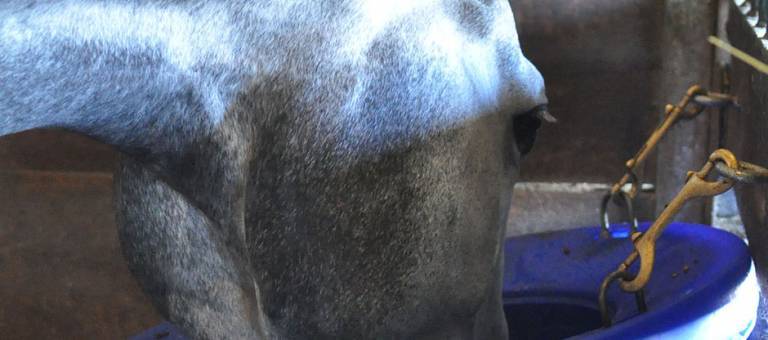
June 09, 2014
What’s the Scoop on Carbohydrates in Horse Feeds?
From a plant perspective, carbohydrates fall into three categories: simple sugars active in plant intermediary metabolism; storage compounds such
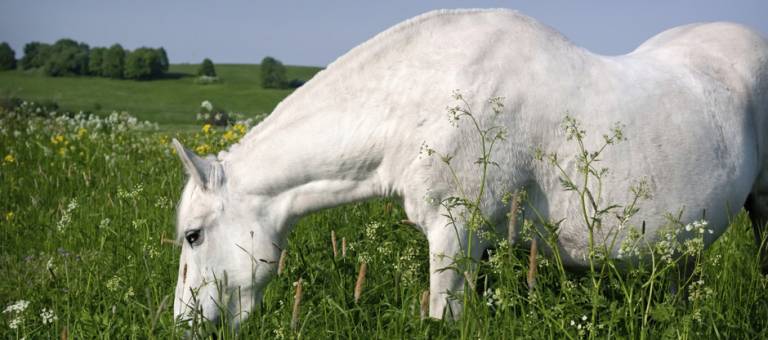
May 30, 2014
Understanding Fructans in Equine Diets
Unlike the relatively stable level of starch in a particular cereal grain, grass fructan levels are immensely variable, making up from
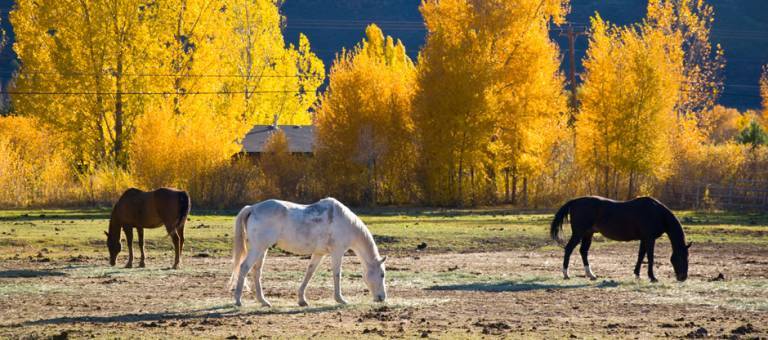
May 27, 2014
Sand for Horses: The Bad and the Good
Sand particles cling to the roots and stems of ingested plants, and this heavy, indigestible material can accumulate in
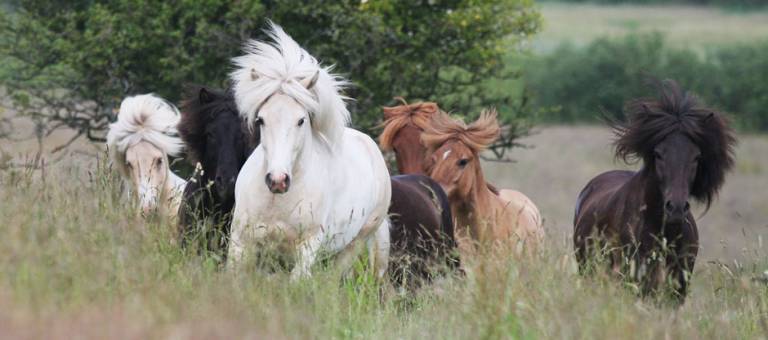
May 23, 2014
Partitioning Digestion in Horses and Ponies
The only certain way to partition digestion between different parts of the digestive tract is to introduce a tube,
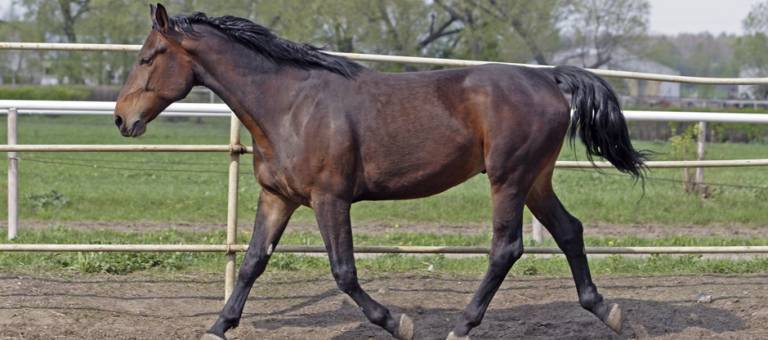
May 18, 2014
Gastrointestinal Tract Basics: The Horse’s Hindgut
The horse is a hindgut fermenter, meaning that the large intestine is the site of fermentation of ingested fiber.
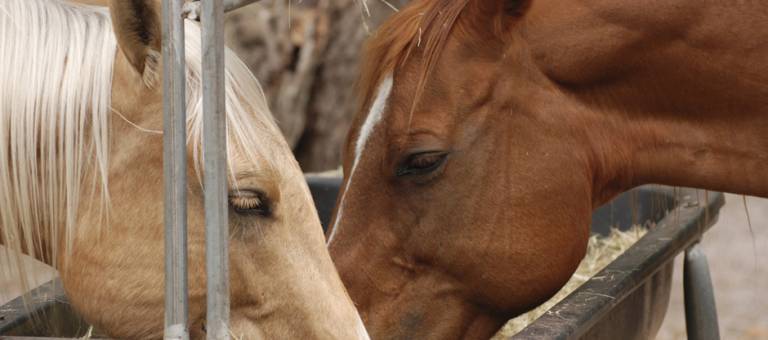
February 07, 2014
Nutritional Factors in Equine Colic
Many abdominal disturbances that result in colic can be traced back to changes in gut motility or bacterial flora.







